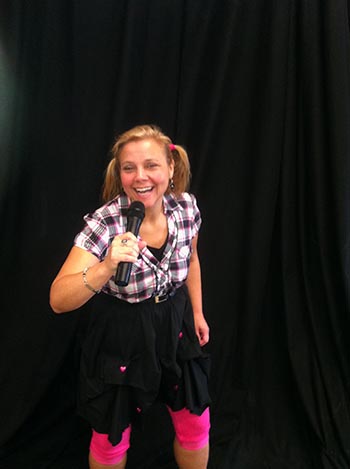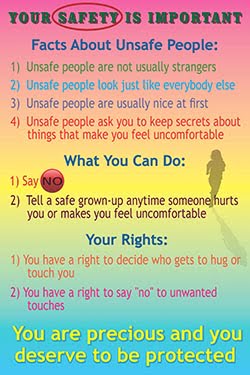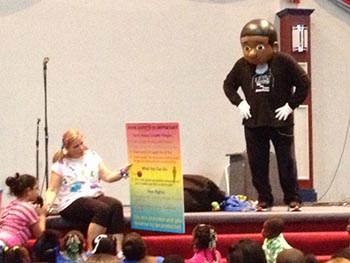How Do I Talk To My Child If I Suspect Sexual Abuse?
Remain calm, patient, and nonjudgmental to help your child feel safe and secure. Your tone, facial expression, and the way you behave will affect your child more than your words. Your goal is to reduce the fear and anxiety that your child may be experiencing by recalling and talking about the abuse.
It is important that you are accepting of your child’s feelings, whatever they may be.
Remember that it is the person who touched your child inappropriately that is to blame for the abuse. Your child is not to blame, regardless of the circumstances.
During your conversation with your child, comfort your child with the healing words “I believe you”, “It is not your fault”, “I love you no matter what”, and “I will take care of you”.
Know that inappropriate touching can sometimes feel good to the child. Asking them if they were hurt may not address what has happened to them.
If your child tells you that they made a promise not to tell, help them understand when it is not ok to keep a secret. For example, if someone made them feel bad or uncomfortable then it is always ok to tell.
What is the difference between a Secret and a Surprise?
Surprises are fun, include people you love and generate excitement when revealed.
Secrets exclude those you love, are not meant to be revealed and make you unsafe.
How Do I Ask My Child Questions If I Suspect Abuse?
Disclosure is difficult. You can help your child by making supportive statements such as “What else happened”, “I won’t be mad at you”, “I want to protect you”, “You are brave”, and “Take your time”.
If you suspect abuse, ask open ended questions. In other words do not suggest what might have happened in the questions you ask. Allow your child to supply the information. Here are some examples:
Do ask: “Who made you feel bad or made you do something you didn’t like?”
Don’t ask: “Did your swim coach touch you?”
Do ask: “What happened?”
Don’t ask: “Were you touched in your private parts?”
Do ask: “When did this happen?” (‘When’ type questions are difficult for children under 5 years old)
Don’t ask: “Did this happen yesterday evening?”
Do ask: “Where did this happen?”
Don’t ask: “Did this happen at your friend’s house?”
Do not ask the same questions over and over again. Children are suggestible, and will want to please you by telling you what they think you want to hear. Your goal is to gather basic information, not conduct an investigation. After asking the questions listed above, if you suspect abuse, do not let your child have contact with the abuser, and contact your local authorities.
Keep Records of Everything
Keep a record of the dates of your child’s disclosures, and what was disclosed. Use your child’s own words as much as possible.
As a final note, keep records of all communication you have with respect to the suspected abuse. This includes dates and times, names and telephone numbers, and notes of each conversation with helpers and authorities.
Teach Your Kids
The National Center for Missing & Exploited Children is the source of the information that follows. It is reproduced here for convenience.
KNOWING MY RULES FOR SAFETY
I CHECK FIRST with my parents, guardians, or other trusted adults before going anywhere, doing anything, helping anyone, accepting anything, getting into a vehicle, or leaving with anyone.
I TAKE A FRIEND with me when going places or playing outside.
I TELL someone “NO” if they try to touch me or do things in ways that make me feel scared, uncomfortable, or confused, because it’s OK for me to stand up for myself.
I TELL my parents, guardians, or other trusted adults if anything happens to me.
Copyright © 1991, 1999, 2005, and 2010 National Center for Missing & Exploited Children. All rights reserved.

How Will I Know if My Child Has Been Abused?
There is a good chance you will not “just know.” Most children are too afraid to disclose they have been abused for various reasons. One of the best things you can do is be vigilant about where, who and what:
– Know where your child is at all times and don’t be afraid to verify!
Humans by nature often test the boundaries of the world around them. An easy example would be the speed limit. If we know the speed limit is 55 mph, how many of us think, “As long as I’m only going 5 or 10 miles over the speed limit, I won’t get pulled over.” Children learn this “testing” as well. Just as a police officer uses a speed detector to keep the driver and those around the driver safe, you as a parent need to check, recheck and verify! His or her safety depends on it.
– Know who your child knows.
We typically choose to spend time with people who have common interests, goals, belief systems and even morals. One of the hard parts about growing up is deciding which aspects of other people do we want to emulate. Helping your child navigate through relationships, learn healthy boundaries, and assess who is safe will give you a higher chance of preventing your child from being abused.
If your child’s best friend is Jessica, especially if sleepovers are requested, you have the right and responsibility to know Jessica and her parents. Just as you would not loan out your car to a stranger, don’t allow your child to spend time with other people that you do not know. Please do not trust your child’s perspective when it comes to assessing if someone is safe.
– Know what activities your child engages in and to what degree.
Predators have easy access to your child!
I said, “Predators have easy access to your child!!”
Between the internet, malls, television, and I could go on and on, you must put a fortress around your child to the best of your ability.
Your best chance of keeping your child safe is to listen, learn, and love.
By keeping an open and warm relationship, you are handing your youngster a lifeline! He or she needs to know they can be honest, ask questions and be heard without judgment, wrath or shame.


